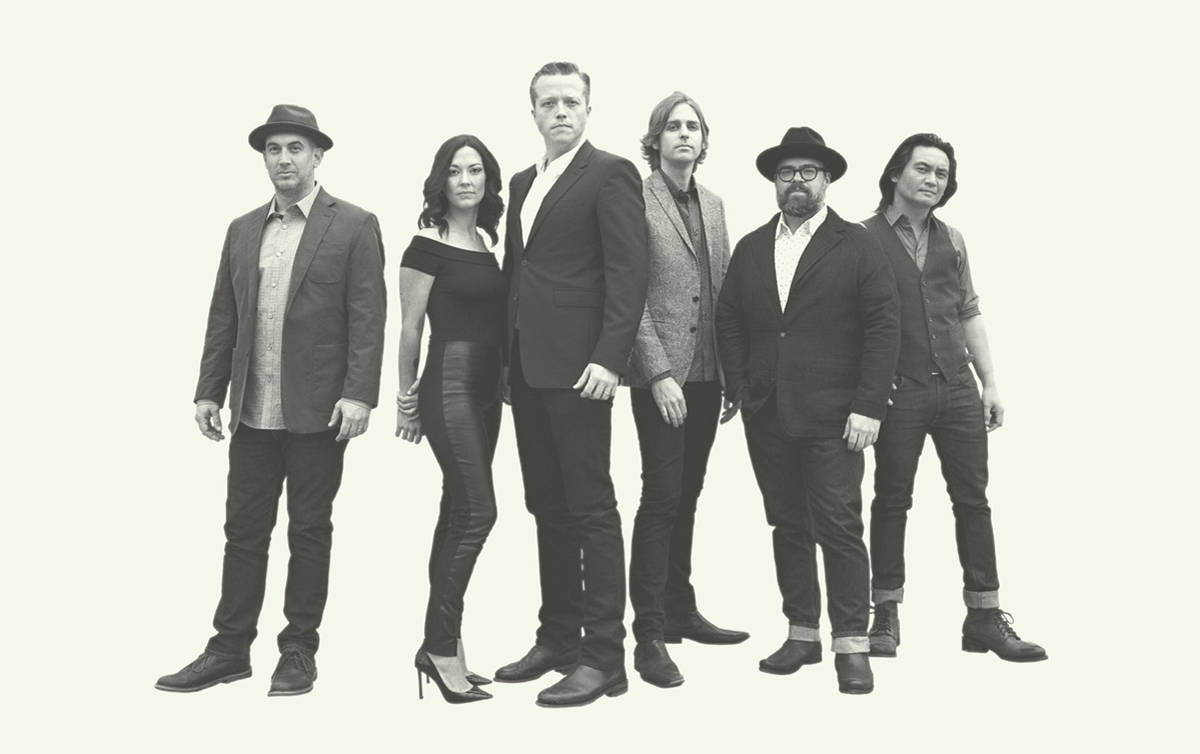 Album Review: “The Nashville Sound” by Jason Isbell and The 400 Unit
Album Review: “The Nashville Sound” by Jason Isbell and The 400 Unit
![]() Since leaving the Southern rock band Drive-By Truckers in 2007, Jason Isbell has released a series of increasingly impressive solo records with songs that reflect Isbell’s gifts as a sophisticated lyricist and his ability to play both acoustic and electric guitar in a way that holds the listener’s attention.
Since leaving the Southern rock band Drive-By Truckers in 2007, Jason Isbell has released a series of increasingly impressive solo records with songs that reflect Isbell’s gifts as a sophisticated lyricist and his ability to play both acoustic and electric guitar in a way that holds the listener’s attention.
His last album, “Something More Than Free” from 2015, was an emotionally nuanced collection of songs that fulfilled the promise of Isbell’s talent from his first days with Drive-By Truckers. Isbell had grown up, and his lyrics reflected the sensibility of a guy who had paused to think about his life choices.
His latest album was recorded with the same set of musicians, now known as The 400 Unit (a name taken from the designation for a psychiatric ward in a hospital in Florence, Alabama). They are a tight, versatile band, able to rock out at a moment’s notice or bring a hushed, contemplative tone to Isbell’s quieter songs. On “The Nashville Sound,” as the title declares, the band shows off their (alt) country music chops. The album takes its name from the recording location, the famous “Nashville Sound” RCA Studio B, and is very much in the Ryan Adams/Springsteen vein: solid, driving songs with smart lyrics.
The record gets started with “Last of My Kind,” a very traditional-sounding country tune with acoustic and steel guitars. It evokes a certain kind of nostalgia with its references to lost artifacts of the rural life such as “Walton’s Five & Dime” and serves as a kind of re-introduction of Isbell’s approach to the album: a country boy meeting the modern world. “Am I the last of my kind?” wonders the singer, with the same kind of resignation Springsteen brings to a song like “My Hometown.”
Fortunately, the next track, “Cumberland Gap,” kicks off with the rock ‘n’ roll staples of electric guitar and a solid beat. But Isbell is still in a reflective mood, confronting his hell-raising, addictive past from the perspective of a guy approaching mid-life. The song curiously romanticizes the coal industry in a way that seems more pandering than provocative, but this doesn’t interfere with the balls-out glory of the music. Isbell’s singing voice has improved with every record, and it certainly wasn’t bad to begin with. But throughout the record his vocals are gentle and clear, especially when he gets into the edgy, haunting blues of a song like “White Man’s World,” in which Amanda Shires’ fiddle adds a lonely counterpart to Isbell’s guitar. Addressed to his young daughter, the song is about as political as Isbell gets on this album, as he considers the “old times” of white privilege and the diminishing influence of “a white man living in a white man’s world.” Isbell’s blues are the result not of a loss of power as much as his recognition of all the animosity white privilege has created in the world. (Donald Trump is not explicitly mentioned, but it’s hard to think of this song being written a few years ago.)
But almost all of the songs here reflect personal, rather than national, politics. In “If We Were Vampires,” Isbell confronts the inevitability of mortality in a loving relationship in a duet with his wife, Shires. “[I] hope it isn’t me who’s left behind,” they sing, in a song that offers a fresh perspective on getting old together. In “Anxiety,” a song that sounds like its subject, Isbell offers a discomforting, stark confessional about the affliction. “I can’t enjoy a goddamn thing,” goes the refrain, accompanied by the only music on the album that doesn’t fully engage the listener, though that may be intentional. The song ends in an extended coda with some Crazy Horse-style feedback that amplifies Isbell’s theme. It’s a rare sour note on the album.
What work best on the record are Isbell’s reflections on the compromises of adult life. The lyrics of “Chaos and Clothes” are earnest and self-reflective, uncertain of the future but ultimately hopeful: “You’ve got the past on your breath, my friend,” Isbell sings, perhaps to himself. But Isbell’s instincts for rock ‘n’ roll eventually outweigh any sentimentality by the album’s final song, “Hope the High Road,” which features guitar playing that evokes the classic sound of David Lindley and a beat too insistent for self-pity.
Jason Isbell is one of the rare performers today who improves with every record, whose lyrics are smart and evocative, and whose music, most importantly, is consistently engaging and vital. He’s getting older, as we all are, but he’s also better.
Articles related to “Album Review: Jason Isbell and his Nashville sound are older, better”
Album Review: With “Skeleton Tree,” Nick Cave sings his grief, creates great album



